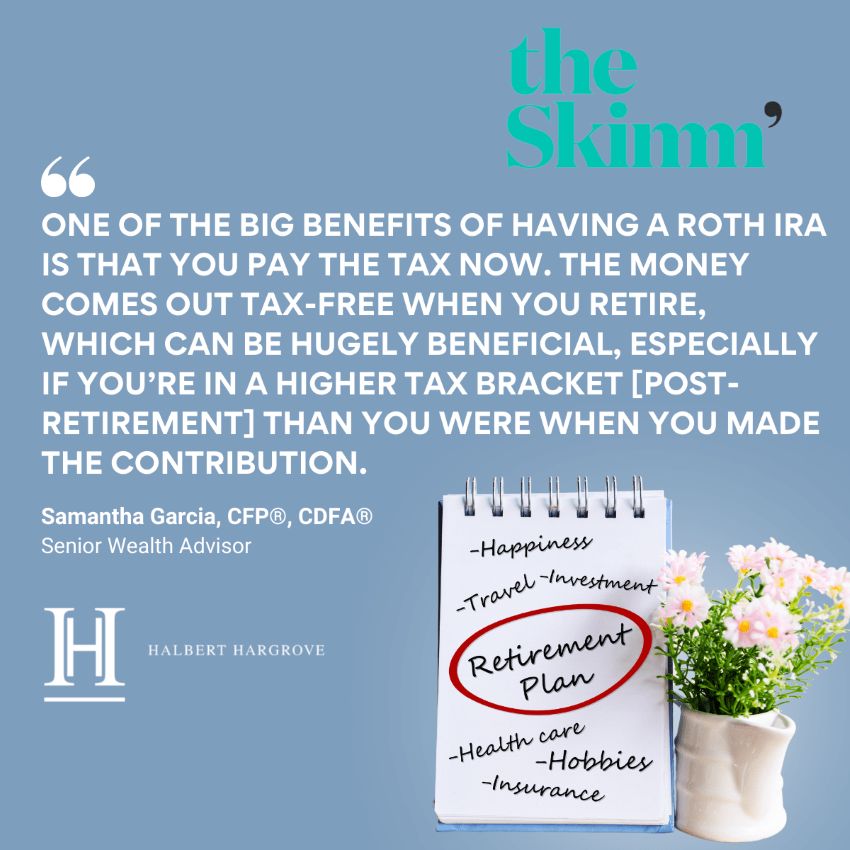By Anna Davies, TheSkimm’, featuring Samantha Garcia, CFP®, AIF®, CDFA®, Senior Wealth Advisor at Halbert Hargrove
Yes — with some considerations. A 401(k) is employer-sponsored and funded with pre-tax money taken directly out of your paycheck (and oftentimes, your employer will match those deposits up to a certain amount). A Roth IRA is an individual account funded with money you’ve already paid taxes on, and income limits apply ($161,000 if you’re single; $240,000 if you’re married).
“I’m always a fan of having as many buckets to pull from in retirement that you can,” says Samantha Garcia, a CFP and senior wealth advisor at Halbert Hargrove. “One of the big benefits of having a Roth IRA is that you pay the tax now. [So,] the money comes out tax-free when you retire, which can be hugely beneficial, especially if you’re in a higher tax bracket [post-retirement] than you were when you made the contribution.”
That said, if you already have a 401(k) plan through an employer that offers a match, you shouldn’t open a Roth IRA until you’ve hit some other financial milestones, like paying down high-interest debt and building an emergency fund. You should also make sure you’re contributing up to the employer match on your 401(k). If you’ve checked those boxes, it might be time to consider adding a Roth IRA, too. “A CFP who knows you and your situation can guide you [on] works for you and your goals,” says Garcia.


